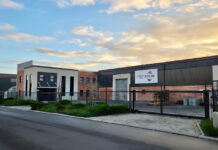The IEA’s call to ban fossil fuel boilers is a welcome ambition and together with policy intervention could bolster demand for heat pump technology.
CLIMATE policy over the last few years has seen the rise and rise of “net zero” targets, to the extent that around 70% of global emissions are now covered by a net zero policy. Converting these long-term ambitions into a clear plan of action is the next step, and the recent publication of a net zero roadmap by the International Energy Agency (IEA) is an important contribution to achieving this goal.
The IEA report makes it clear that deployment of existing clean technologies needs to accelerate immediately: this is not tomorrow’s trend.
The IEA report also calls for bans on fossil fuel boilers to start being introduced globally in 2025, driving up sales of electric heat pumps. The looming cutoff points for commonplace consumer goods, such as gas boilers, highlights what a stark break from the past the net zero pathway will be.
Heating: the challenge and the solution
In Europe, buildings account for 36% of emissions, and 40% of energy demand. Space heating accounts for around two-thirds of that energy demand and most of this demand is met by products reliant on fossil fuels. Heat pump technology is readily available and has strong environmental credentials. A heat pump running on green electricity can reduce heating emissions by more than 90% compared to a gas boiler.
Under the IEA’s roadmap, heat pumps meet 50% of heating demand by 2045, from a tiny starting position today. However, heat pumps are not the only way to decarbonise heating, hydrogen can also play a role, as can district heating systems (a system for distributing heat generated in a centralised location through insulated pipes). There are certainly certain parts of the world to which heat pumps are better- or worse-suited, depending on factors such as the cost of the prevailing technology, and how well-insulated the housing stock is. This explains why heat pumps are often used in the Nordics, but rarely in the UK at present.
Whichever mix of heating technologies ends up being used, the common factor underpinning all of this is more renewable energy (either used directly or indirectly via green hydrogen). This offers opportunities for countries with abundant natural renewable resources, which may become net exporters of hydrogen. For example, a utility in Italy has proposed importing green hydrogen from Africa, and South Africa has proposed a national strategy on green hydrogen production, with a view to one day becoming an exporter.
To get drawn into a debate over which technology ‘wins’ risks missing the point: all of these technologies will need to grow massively. Where the market conditions aren’t currently conducive to heat pumps or other low carbon solutions (for example, because gas is a cheaper option), carrot and stick policies, such as those suggested by the IEA, will likely be introduced.
What does this mean for investors?
As investors in climate change we are particularly interested in industries approaching inflection points, as these breaks with history often result in growth that is underappreciated by financial markets (which are more accustomed to thinking of trends in a linear way). Sometimes these inflection points occur as one technology expands and reaches cost competitiveness with another (as was the case with onshore wind and solar).
However, they can also occur more abruptly when an incumbent technology is simply banned, as could soon be the case with new gas boilers. The heat pump market has been growing at a low single digit rate on average over the past few years, and penetration rates are still largely below 10% outside of the Nordics. Policy intervention could completely revolutionise this market.















